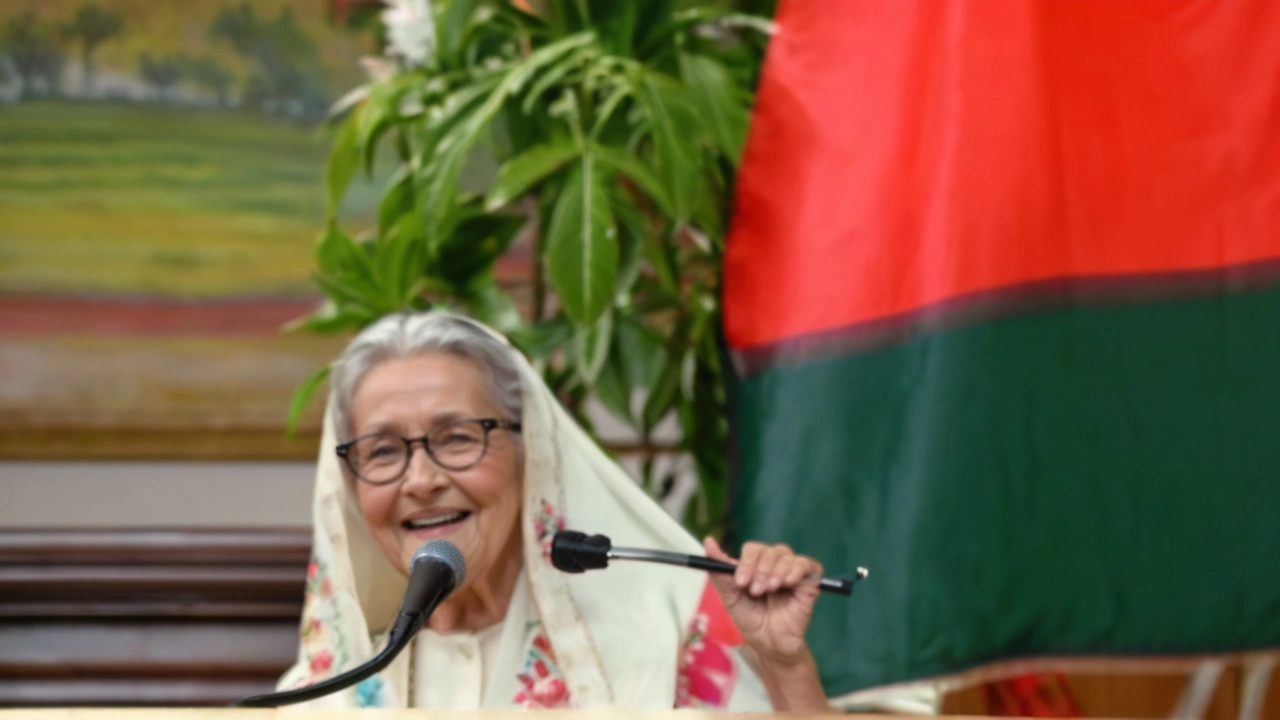An Introspective Look at 'Why I Stopped Being a Vegetarian'
Laura Fraser, in her article 'Why I Stopped Being a Vegetarian,' embarks on a deeply personal journey that spans over fifteen years of her life. Fraser candidly shares the motivations and revelations that led her to initially embrace and then eventually abandon a vegetarian lifestyle. Adopting a vegetarian diet is a significant step for many, often inspired by a combination of health, ethical, and environmental considerations. However, Fraser’s candid narrative dissects each of these motives with a mix of humor and blunt honesty, offering a fresh perspective on a widely discussed topic.
The Beginnings: A Quest for Health and Ethics
Fraser begins her story by recounting her reasons for becoming a vegetarian. Like many, her transition was driven by a desire to lead a healthier life and to take a stand against practices she found unethical within the meat industry. Additionally, environmental concerns played a significant role. She echoes the sentiments of many who believe that a vegetarian diet can contribute meaningfully to reducing one's carbon footprint and to the ethical treatment of animals.
The initial phase of Fraser's vegetarianism is painted in a light of idealism and optimism. She describes a sense of moral superiority and satisfaction, a belief that her dietary choices were making a significant positive impact. Fraser's journey into vegetarianism is relatable to many who have taken a similar path, driven by a sense of responsibility towards both personal health and the planet.
The Reality Check: Health Struggles and Exceptions
However, Fraser's optimism begins to wane as she encounters numerous challenges while adhering to her diet. She recalls realizing that the meals she once thought were healthy were, in fact, lacking in essential nutrients. This revelation struck a chord, pushing her to question the effectiveness of her diet. The vitamin deficiencies and health issues she began to face overshadowed the benefits she initially expected.
Additionally, Fraser admits to frequently making exceptions for fish and other animal products, a practice known as pescetarianism. These exceptions, she argues, almost mock the very ethical and environmental reasons she had embraced vegetarianism in the first place. The self-reflection she engages in reveals a critical internal conflict – maintaining a diet believed to be superior while constantly breaching its strict tenets.
Ethical Dilemmas and Personal Justifications
The ethical standpoint Fraser once held starts to crumble as she becomes aware of her rationalizations. She posits that many vegetarians, herself included, often hold onto justifications that make them feel good about their choices despite their occasional lapses. This realization pushes her to confront the idea that these justifications might serve more as a means of self-comfort rather than genuine ethical commitment.
Fraser's tone throughout this examination is both humorous and critical. She pokes fun at her own hypocrisies and the often convoluted moral high ground that vegetarians, herself included, sometimes claim to occupy. Her candid admission that these ethical and environmental arguments can often serve as little more than excuses offers a refreshing, if uncomfortable, perspective.
The Narrative's Impact: Humorous Yet Divisive
While Fraser's narrative is engaging and relatable, her tone runs the risk of alienating the very audience most likely to be interested in her story – vegetarians and those considering the lifestyle. By labeling vegetarians as potentially selfish or self-deluding, she might inadvertently turn them away rather than encouraging them to reflect on their own practices. The bluntness with which she shares her realizations, wrapped in humor, has the potential to be perceived as flippant, reducing the persuasive power of her arguments.
Structuring Persuasion: Personal Anecdotes and Logical Reasoning
The structure of Fraser's article is carefully crafted to blend personal anecdotes with logical reasoning. Her stories of health struggles, dietary exceptions, and ethical dilemmas are intertwined with broader arguments about the validity of vegetarianism. This mix aims to create a compelling case that is both personal and universally relatable.
Despite this, Fraser's narrative may fall short for some readers due to the lack of robust, convincing evidence. Her anecdotes, while powerful, do not always translate into broad, undeniable truths about vegetarianism. For some, her personal journey may not be enough to challenge or change deeply held beliefs about diet and ethics.
Conclusion: A Humorous Exploration, But Not Revolutionary
In conclusion, Laura Fraser's 'Why I Stopped Being a Vegetarian' is a thought-provoking piece that invites readers to walk through her personal journey of adopting and then abandoning a vegetarian diet. Her candid and humorous approach provides an engaging read, filled with personal insights and reflections. However, the potential for alienation and the lack of compelling evidence might limit its impact on committed vegetarians.
Regardless of its persuasive power, the article succeeds in sparking conversation and reflection about dietary choices, health, and ethics. Fraser’s story, filled with honesty and self-examination, serves as a testament to the complex and often contradictory nature of personal beliefs and practices.






Sameer Kumar
August 5, 2024 AT 21:23Laura Fraser’s story hits deep because it shows how diet is more than food it’s identity and belief It reminds us that any lifestyle can shift when life throws new data at us The journey from idealism to doubt is a classic philosophical theme and it feels personal here We all chase health but sometimes the body tells us a different truth
Lane Herron
August 10, 2024 AT 12:30Ah, the perennial "I changed my mind" narrative-truly a hallmark of the indecisive elite who love to weaponize anecdotal evidence while sprinkling buzzwords like "nutritional biochemistry" and "ethical dissonance" for that extra dash of drama, because why settle for a simple story when you can overcomplicate it?
Lois Parker
August 15, 2024 AT 03:37I guess it’s just a personal thing.
Lerato Mamaila
August 18, 2024 AT 14:57Wow, what a journey!; the way she flips from “I’m saving the planet” to “I’m just hungry” is both humorous and, frankly, a bit shocking; kudos for the candor, Laura-keep it real, keep it raw!.
Dennis Lohmann
August 22, 2024 AT 16:10Great read! 😊 It’s so refreshing to see someone admit the messy side of diet changes. Everyone’s path is different, and sharing the ups and downs helps us all feel less alone. Keep the honesty coming! 🌱
Jensen Santillan
August 26, 2024 AT 17:23While the anecdotal evidence presented is compelling, it also suffers from selective reporting-an inevitable bias when personal narrative masquerades as universal prescription. One must ask whether the nutritional deficits cited are statistically significant or merely anecdotal artifacts. Moreover, the oscillation between pescetarianism and strict vegetarianism evidences a lack of methodological rigor.
Mike Laidman
August 31, 2024 AT 08:30The article provides an insightful case study albeit lacking comprehensive empirical support. While the author’s personal experience is valuable, it should be supplemented with peer‑reviewed data to substantiate the claims made regarding nutritional deficiencies and ethical considerations.
J T
September 3, 2024 AT 19:50Honestly, it’s just a story, do what works for you. 👍
A Lina
September 7, 2024 AT 21:03The piece, while earnest, falls into the trap of conflating individual variance with normative dietary guidance; its reliance on personal justification rather than rigorous metric analysis undermines its authority.
Virginia Balseiro
September 11, 2024 AT 22:17Whoa! This read was a roller‑coaster of emotions! From laughing at the self‑ironies to feeling the weight of those health scares-what a wild ride! You can’t help but feel pumped up to reflect on your own choices! Keep the fire alive! 🔥
Jared Mulconry
September 16, 2024 AT 13:23I appreciate the balanced tone here; it invites dialogue without vilifying any side. It’s important we keep conversations open and respectful, especially on topics that touch personal health and ethics.
Brandon Rosso
September 20, 2024 AT 14:37Indeed, the narrative showcases resilience and adaptability-key virtues for anyone navigating complex lifestyle choices. One should commend the author for confronting both the triumphs and tribulations with candor and a forward‑looking optimism.
Tracee Dunblazier
September 25, 2024 AT 05:43The article strikes a thoughtful balance, though at times it drifts into overly formal diction. Still, the core message resonates and encourages reflective discussion.
Edward Garza
September 28, 2024 AT 17:03The piece reads like a personal diary, lacking rigorous analysis; it feels more anecdotal than evidential.
Allen Rodi
October 2, 2024 AT 18:17If you’re considering a dietary shift, it might help to consult a nutritionist to ensure you’re covering all essential nutrients. Also, gradual transitions can make the change more sustainable.
Jody Webster
October 6, 2024 AT 05:37Well… I guess the whole "vegan versus meat" debate is just a fad, isn’t it?; but maybe, just maybe, there’s a point to all that ethics talk-who knows?!🙃
Steve Goodger
October 10, 2024 AT 20:43Reading Fraser’s account reminded me of the broader conversation about dietary autonomy, the interplay of cultural narratives, and the scientific underpinnings of nutrition. First, it is crucial to acknowledge that food choices are deeply embedded in identity, history, and community, which means any shift can trigger a cascade of psychological adjustments. Second, the physiological ramifications of moving away from a plant‑centric diet are not merely about macro‑nutrient ratios but also micro‑nutrient availability, gut microbiome composition, and hormonal modulation. Third, the ethical dimension frequently cited as a driving force for vegetarianism can, paradoxically, become a source of cognitive dissonance when practical realities-such as accessibility, economic constraints, and taste preferences-intervene. Fourth, Fraser’s intermittent pescetarianism illustrates a common transitional strategy, yet it also underscores the slippery slope of dietary compromises and the potential erosion of original intentions. Fifth, empirical studies have shown that while omnivorous diets can meet nutritional needs more readily, well‑planned vegetarian or vegan diets can also achieve comparable health outcomes, provided they are supplemented appropriately. Sixth, the article’s humor serves a valuable function, disarming defensive postures and inviting readers to engage in self‑reflection without feeling judged. Seventh, however, humor can also alienate staunch adherents if perceived as dismissive, which underscores the importance of tone in public discourse. Eighth, the broader societal implications involve policy considerations, such as food labeling standards, subsidies for sustainable agriculture, and educational campaigns that promote informed choices. Ninth, from a personal standpoint, the narrative encourages us to listen to our bodies, to monitor biomarkers, and to remain flexible in our dietary philosophy as new evidence emerges. Tenth, it is also a reminder that no single narrative can capture the heterogeneity of experiences within the vegetarian community, and thus we should celebrate diversity of thought rather than enforce monolithic standards. Eleventh, the timeline of Fraser’s journey, spanning fifteen years, reveals the long‑term evolution that many individuals undergo, which is often omitted in short‑form media. Twelfth, the intergenerational transmission of dietary habits further complicates the picture, as families negotiate cultural heritage and modern health trends. Thirteenth, the environmental argument, while compelling, requires a nuanced assessment of lifecycle analyses that account for regional agricultural practices. Fourteenth, finally, Fraser’s candid admission of hypocrisy invites us all to examine the gaps between our proclaimed values and lived actions, fostering a more honest and compassionate self‑dialogue. In sum, the piece is a valuable contribution to the ongoing dialogue about food, ethics, and health, prompting both introspection and broader societal discussion.